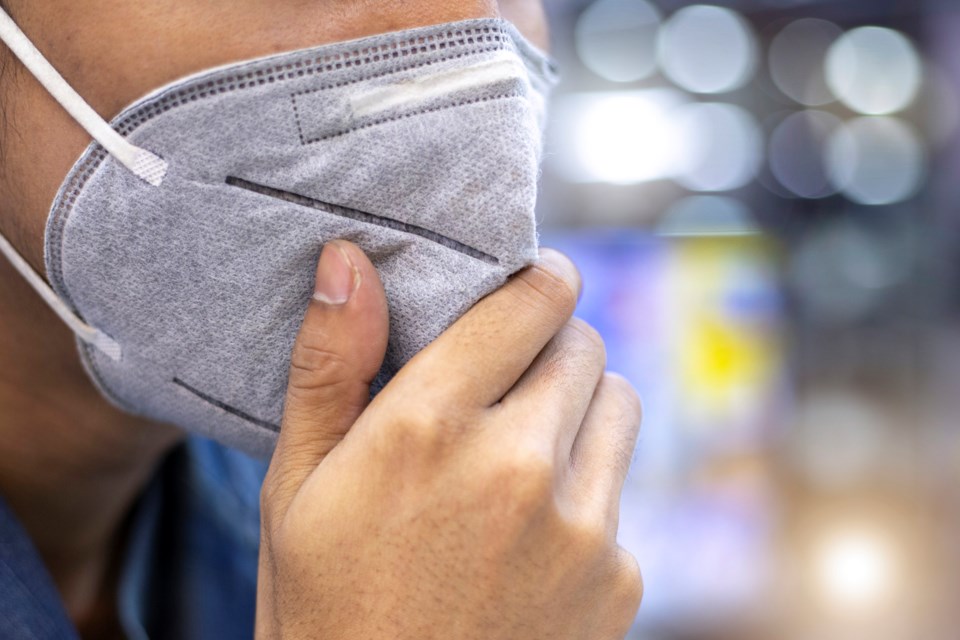COVID-19 hospitalizations in B.C. have been on the decline for more than a month, and dropped to 185 on December 13 – the lowest level since August 30, and the first time under the 200 threshold since September 2.
Of those, 72 COVID-19 patients remain in intensive care units (ICU), according to B.C. government statistics.
Five people lost their lives to the disease in the past three days. That raises B.C.'s pandemic death toll to 2,386.
Of the 223,142 people known to have contracted the disease, 217,705 are thought to have recovered.
The B.C. government usually considers COVID-19 patients to have recovered if they have gone 10 days following first feeling symptoms, as they are therefore deemed to no longer be infectious. Some patients, however, continue to have health problems for months after their recoveries.
Despite the steady decline in the number of COVID-19 patients in B.C. hospitals, Health Minister Adrian Dix stressed last week that the province's hospitals were "extremely busy."
In total, 9,806 of B.C.'s 12,310 hospital beds were filled at the time, he said.
The province has 11,582 beds in what it calls "acute care," which includes most patients' needs. Of those, 9.330 beds are filled, Dix said last week.
Another 728 B.C. hospital beds are in ICUs, and are for patients who have more serious illnesses or need special attention. Those beds include 510 that existed before the pandemic, and do not need extra staff resources. Another 218 ICU beds were added during the pandemic, are for emergencies and are called "surge" beds.
To make room in ICUs for potential future patients in areas, such as the Northern Health region, where ICU occupancy is at or near capacity, 150 people were flown to the Lower Mainland, and Vancouver Island, as of last week, Dix said. Of those, 117 had COVID-19, with the vast majority of those not being vaccinated, he added.
New daily case counts have been holding relatively steady, with 415 on December 11, 365 on December 12, and 349 in the past 24 hours.
There are 2,949 people in B.C. actively battling infections, according to the province. That is down by 45 from Friday. The drop, however, came largely because in the past two data updates the count of active infections was erroneously 50 cases above what the number should have been, according to the government. That correction today pushed down the active infections by 50.
The active cases include:
• 850 in Fraser Health;
• 565 in Vancouver Coastal Health;
• 529 in Interior Health;
• 240 in Northern Health;
• 764 in Island Health; and
• one case in a person who normally lives outside B.C.
Unvaccinated people are the ones mostly spreading the disease.
Between December 3 and December 9, people not fully vaccinated accounted for 54.9% of new cases, and between November 26 and December 9, those individuals accounted for 67.9% of hospitalizations.
This is despite the vast majority of British Columbians being fully vaccinated.
B.C. government data show that 4,310,875 residents have had at least one dose of vaccine, while 4,103,917, or 95.2% of those are fully vaccinated with two doses. Another 589,595 British Columbians have had three doses of vaccine, including 26,268 in the past three days.
Victoria estimates that 86.5% of eligible British Columbians, older than five years, have had at least one vaccine shot, while 82.3% of that eligible group is fully vaccinated with two jabs.
The B.C. government last year estimated in that the province's total population is 5,147,712, so Glacier Media's calculation is that more than 83.7% of B.C.'s total population has had at least one dose of vaccine, and more than 79.7% of the province's total population has had two doses.
Fraser Health earlier today announced that the outbreak at Burnaby's George Derby Centre has been declared over. There are three active outbreaks at health-care facilities in B.C.
• Ponderosa Lodge in Kamloops;
• Ridge Meadows Hospital in Maple Ridge; and
• Laurier Manor in Prince George. •



